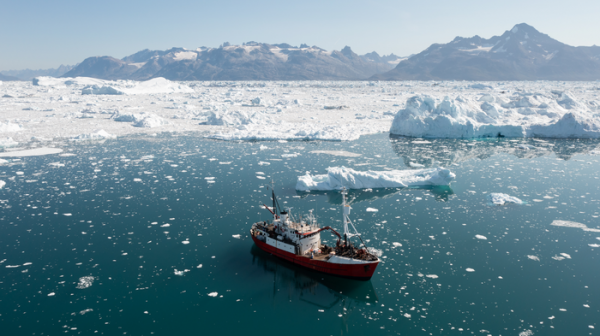Rising air temperatures amplify the effects of melting caused by ocean warming, leading to greater ice loss from the world’s second largest ice sheet, a study reveals.
While previous studies have shown that rising air and ocean temperatures both cause the Greenland ice sheet to melt, the new study reveals how one intensifies the effects of the other.
Faster Melting - Experts liken the effect to how ice cubes melt more quickly if they are in a drink that is being stirred – the combination of warmer liquid and movement accelerates their demise.
In Greenland, amplification occurs when warm air temperatures melt the surface of the ice sheet, generating meltwater.
Meltwater flowing into the ocean creates turbulence that results in more heat melting the edges of the ice sheet submerged in the ocean – so-called submarine melting.
Read more at: University of Edinburgh
Researchers monitoring water temperatures in Sermilik Fjord, southeast Greenland. (Photo Credit: Jamie Holte)


